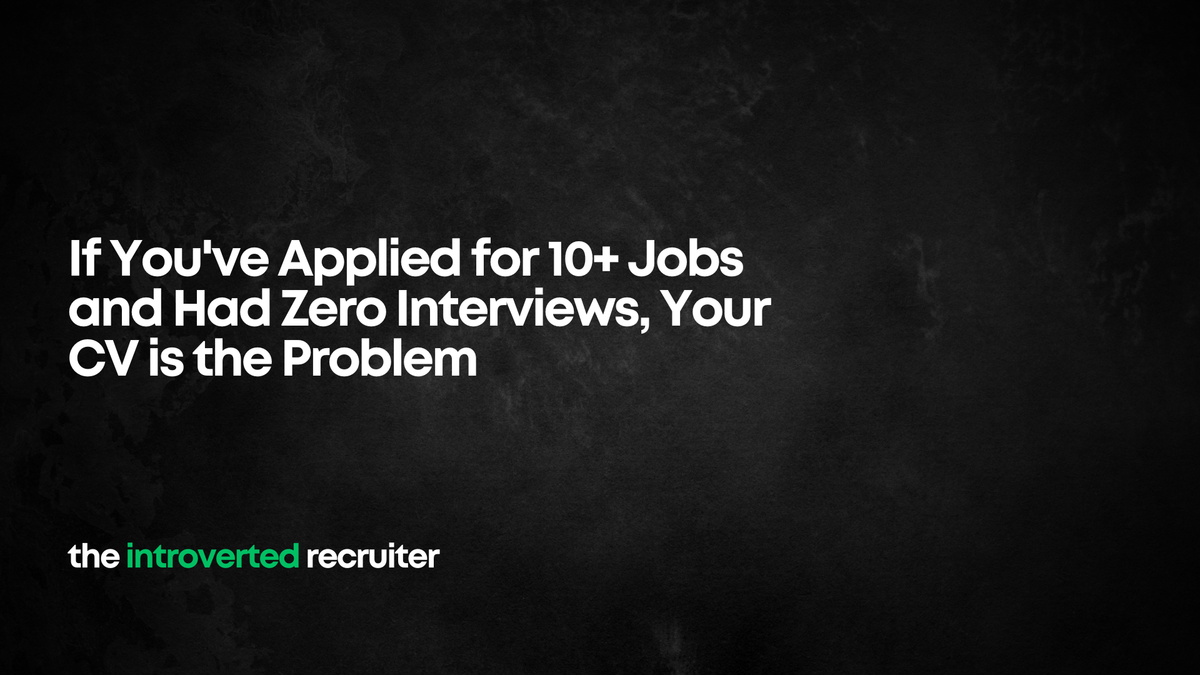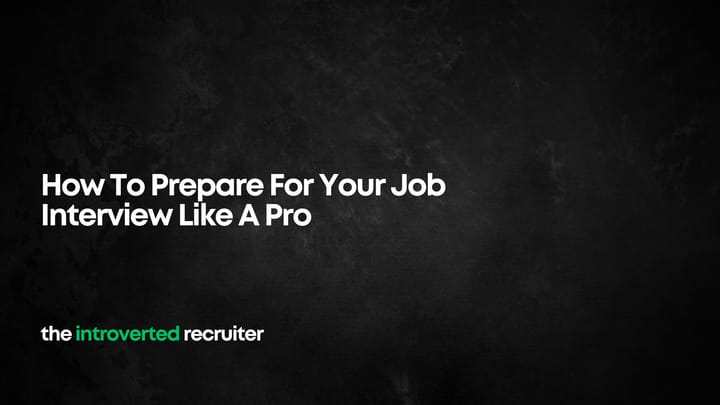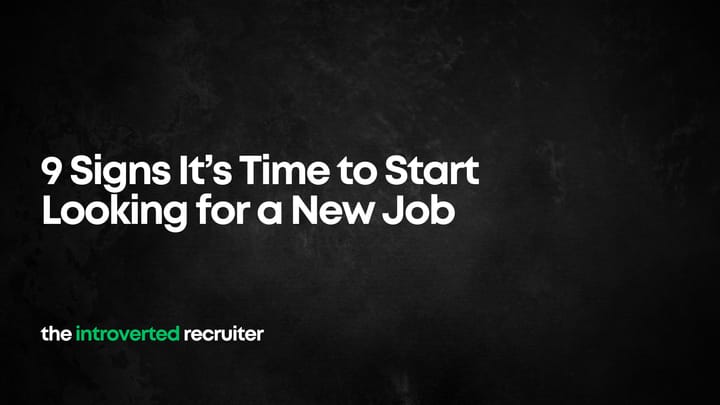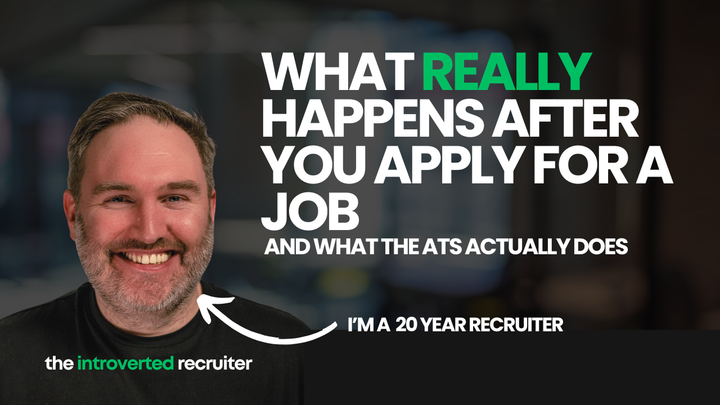If You've Applied for 10+ Jobs and Had Zero Interviews, Your CV is the Problem

Every day on LinkedIn, I see people posting about how they've applied for 100, 200+ jobs and haven't landed a single interview. If that's you, stop what you're doing.
Because if you've applied for just 10 jobs and haven’t had a single interview, your CV is the issue.
It's not selling your achievements. It's not clearly showing your impact, skills, or what you bring to the table. And that means recruiters and hiring managers are skimming past it and moving on.
Nobody Reads Your CV Word for Word
First, let's get one thing straight—no recruiter or hiring manager is reading your CV line by line. They're skim reading it in five to six seconds to see if you’re a match. If they can’t immediately spot the right skills and experience, you're out.
So your CV needs to make an impact fast.
Here’s exactly how you fix it.
The First Half-Page of Your CV is Everything
If your CV isn’t getting results, the first thing you need to do is fix the top half of page one. This is the only part that matters if a recruiter is deciding whether to keep reading.
Contact Information (Keep It Simple)
- Your name, phone number, email
- Your location (just the city or town, not your full address)
- Your LinkedIn profile link (if it’s decent and up to date)
If your location is missing, recruiters will skip your CV because they don’t know if you’re local or within a commutable distance. Even for remote roles, some companies can’t hire in certain locations. Make it easy for them.
Personal Summary (Two to Three Sentences, No More)
This is not a place to waffle. It’s a snapshot of who you are, what you do, and your key achievements.
Example:
"Experienced Talent Acquisition Leader with a track record of building high-performing teams and delivering innovative hiring strategies. Co-founded and scaled a recruitment SaaS business, raising over £1M in funding. Currently leading Talent Acquisition strategy for [Company X]."
That’s it. A couple of sentences. No fluff.
Key Skills (Make Them Skimmable)
Pick six to eight key skills and list them as bullet points. These should be relevant to the job you're applying for.
Avoid generic terms like:
- Hardworking
- Team player
- Motivated
Instead, be specific:
- Data Analysis & Visualisation (Power BI, SQL)
- SaaS Product Management
- Digital Marketing (SEO, PPC, Social Ads)
- Recruitment Strategy & Employer Branding
If a recruiter can't instantly see your relevant skills, you're getting skipped.
Your Work Experience: Achievements, Not Responsibilities
Most people’s CVs read like job descriptions. That’s a huge mistake. Nobody cares what you were "responsible for." They want to know what you achieved.
Here’s how to structure it:
Company Name | Job Title | Dates Worked
A short context paragraph (two to three lines) explaining what the role involved and the environment you worked in.
Then, bullet points with clear achievements.
Example – Good CV:
Talent Acquisition Manager, TalkTalk (2020-Present)
Joined during a major company transformation, relocating 400 roles from London to Manchester while rebuilding an in-house recruitment team from scratch.
- Reduced cost per hire from £5,432 to £1,682
- Cut time-to-offer from 37 days to 30 days
- Increased team engagement score from 88 to 100 (45 percent above industry benchmark)
Why this works:
- Context is clear
- Achievements are measurable and quantified
- It shows impact, rather than just listing what they did
Example – Bad CV:
Talent Acquisition Manager, TalkTalk
- Responsible for recruitment strategy
- Managed a team of nine
- Worked on talent acquisition projects
Why this is terrible:
- No achievements
- No numbers
- Sounds like every other CV
If you’re only listing duties, your CV is useless.
Education: Keep It Simple
This goes at the bottom. Include:
- Your highest level of education (Degree, Masters, etc.)
- Relevant certifications (if they matter for your job)
- No GCSEs or A-Levels unless you’re a recent graduate
Do Not Include Hobbies (Unless They're Relevant)
Hobbies do not help you get a job. In fact, they might cost you an interview.
Example of a bad hobbies section:
- Running, boxing, and tennis
One hiring manager might think: "This person must be disciplined and self-motivated."
Another might think: "Not a team player, all individual sports."
Bias exists. Why risk it?
The only time to include hobbies is if they directly relate to the job.
For example, if you’re applying for a car sales job and you restore classic cars in your spare time, then include it.
Stop Applying for Jobs Until Your CV is Fixed
If you've applied for 10+ jobs and haven’t heard anything, stop sending out that same CV. Fix it first.
- Make the first half-page strong
- Show achievements, not responsibilities
- Quantify everything with numbers
Need help? I’ve got a free CV template that’s actually getting people interviews
Want More Interviews & Faster Job Offers?
If job hunting is starting to feel like an endless cycle of applications and ghosting, let’s fix that.
I’ve put together some no-nonsense job search tools designed to help you land interviews faster—because you don’t need more stress, you need results.
✅ Free CV Template – A CV Template that will actually help you get job interviews.
✅ CV Review Tool - Get real time feedback on your CV using my AI CV Reviewer.
✅ The No-Nonsense Job Search System – A step-by-step course to help you cut through the noise and get hired faster.
✅ Job Search Mega Bundle – Essential templates & strategies to streamline your job search.
✅ CV & Cover Letter Bundle – A simple, effective shortcut to applications that actually stand out.
✅ The Ultimate Gude To Job Searching – Practical strategies to fix your CV, ace interviews, and secure job offers.
Grab your free CV & explore the tools here
Your next job is closer than you think—let’s make it happen.
Follow Me
Find me on LinkedIn , TikTok , YouTube or Instagram where I share lot’s of practical no nonsense advice.



